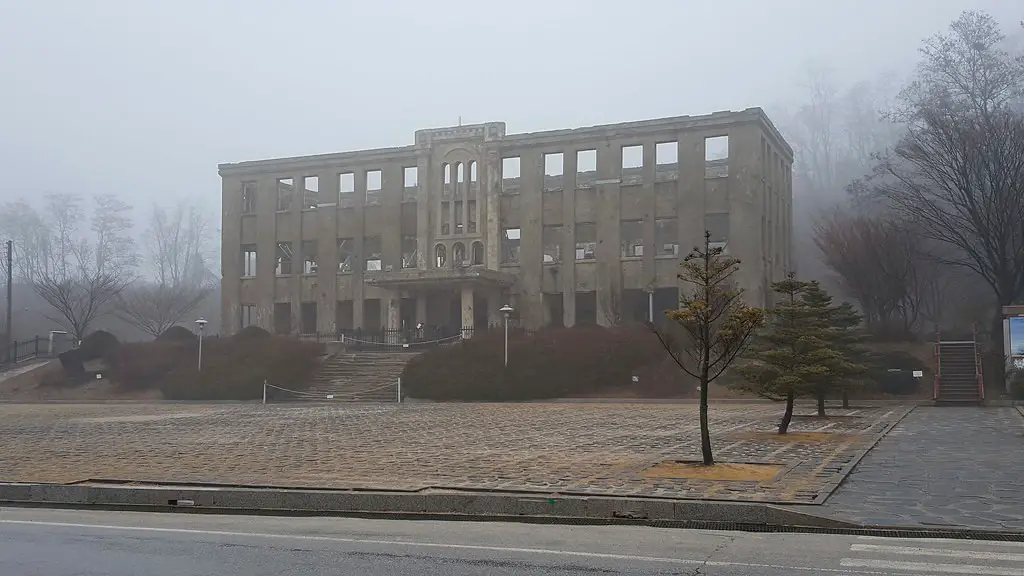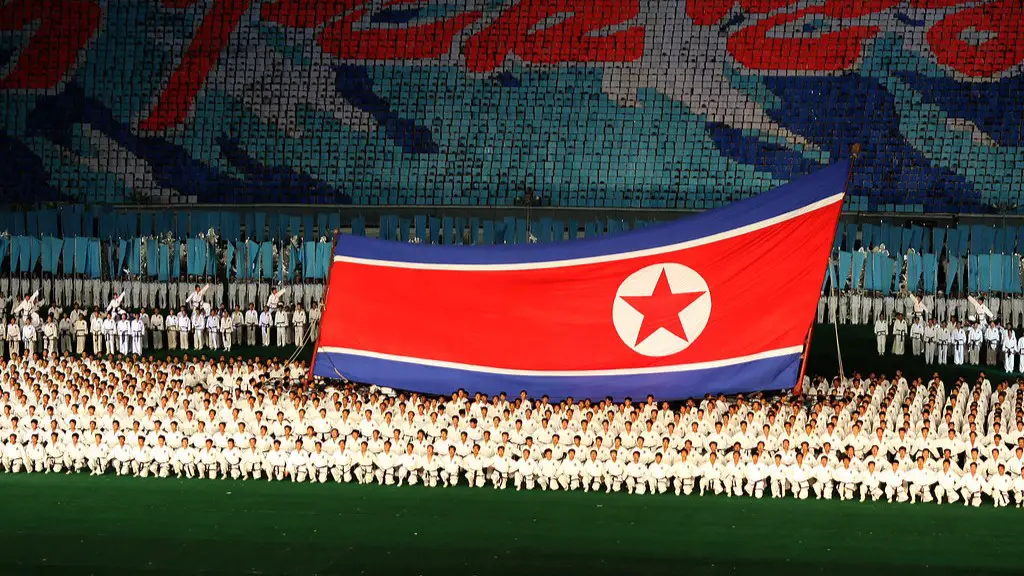Background of North Korea’s Economy
North Korea has one of the most isolated economies in the world today, with little access to the global markets. North Korea’s economy is largely centrally planned and remains one of the world’s last five communist countries. It is also one of the least developed countries in the world. Its economy is based primarily on subsistence agriculture and relies heavily on international aid. North Korea’s economic policy is centered on the idea of self-reliance or “juche”, which is mentioned in the national anthem, and which requires that all decisions be made within the country and not rely on outside sources. In addition, North Korea has had very little success in its attempt to diversify its economy and the country largely remains reliant on its traditional sources of labor and production.
Current Status of North Korea’s Economy
The current status of North Korea’s economy is one of extreme poverty. According to a World Bank report from 2019, roughly two-thirds of North Koreans are living in poverty, with a poverty rate around 25%. It is estimated that the average North Korean earns around $1,400 per year, and the country is currently facing a number of economic challenges in terms of its overall economic growth. North Korea has seen a decline in its GDP from a peak of 4.7% in 2013, to around 1.6% in 2019.
In addition to its economic challenges, North Korea has also been subject to several international sanctions in recent years. These sanctions have effectively crippled the country’s economy by limiting the export of goods and services, as well as reducing the amount of available foreign currency. According to a report by the UN, these sanctions have had a particularly devastating effect on the poor, who are reliant on the black market for basic necessities and on public welfare systems for assistance.
Issues with North Korea’s Economy
Though the economy of North Korea ranks quite low in many respects, it is also facing a number of structural problems that have hindered its growth and development. These include an incredibly inefficient governmental system, lack of access to productive technology, and a heavily subsidized state-run sector. The inefficient governmental system has been one of the primary obstacles to economic growth, as it has caused corruption, bribery and nepotism to run rampant, as well as stifling any form of competition.
The lack of access to technology has also limited North Korea’s ability to develop economically, as the country is unable to keep up with the times or compete on the global scale. In addition, the state-run sector is heavily subsidized, which has caused lower productivity and has stunted the growth of the private sector. All these issues combined have created an unfavorable environment in which it is difficult to create a vibrant and healthy economy.
Effects of North Korea’s Economy
The economic challenges that North Korea faces have already had a drastic effect on the population. For the most part, the citizens of North Korea have no access to basic amenities such as electricity, running water, or the internet. According to the World Food Programme (WFP), around 10 million North Koreans are in need of food assistance. This is in addition to the estimated 2 million people who have died of starvation and malnutrition in the past decade.
The situation is further exacerbated by the presence of international sanctions, which have caused shortages of vital goods, as well as further cuts to basic services and assistance programs. Furthermore, North Korea has had very little success in terms of reform, making it difficult for the citizens to receive the help and support that is needed.
Perspectives from Experts
According to experts, in order for North Korea to make progress in terms of its economic development, the government must make the necessary reforms. These reforms should involve the creation of a more open and competitive environment, as well as increased access to technology. In addition, the government must focus on reducing corruption and ideological incentive structures, as well as on providing incentives for businesses to innovate.
North Korea must also focus on rebuilding its relationship with the international community in order to gain access to global markets and to receive foreign direct investment. This could be accomplished through policy reforms, such as reducing military spending, seeking international cooperation on economic projects, and building better diplomatic relationships.
Analysis of North Korea’s Economy
The economic challenges that North Korea has been facing for decades now have caused it to fall further and further behind the rest of the world. It is clear that the government must take a proactive approach to tackling these issues in order for the country to progress. Great strides have been made in the past few years, however, the challenges still remain, as the country is struggling to meet the basic needs of its citizens.
Though it is often said that the only solution to North Korea’s economic crisis is through reform, it is important to note that the country’s economic situation is a complex problem that is rooted in a multitude of factors. In order for real and lasting change to take place, the government must take into account these issues and come up with holistic solutions.
Alternatives to North Korea’s Economy
Though North Korea’s economy is largely perceived to be a closed one, there are some potential alternatives that could be pursued. One such alternative is the establishment of special economic zones, which could promote trade, foreign investment, and economic cooperation with other countries. Another alternative is to seek out forms of aid from other countries, as well as from international organizations such as the United Nations (UN). Additionally, North Korea could also pursue more sustainable forms of economic development, such as renewable energy and energy efficiency projects.
Role of Outside Nations in North Korea’s Economy
Outsider nations have the potential to play an important role in the development of North Korea’s economy. This could include the provision of aid, foreign direct investment, and technological expertise. In addition, outside nations could also provide assistance in terms of economic reforms and in helping North Korea to access global markets. However, any assistance or involvement would have to be done on a case-by-case basis and in accordance with international law.
Opportunities for North Korea’s Economy
Though North Korea’s economy remains one of the poorest in the world, there are still a number of opportunities for the country to improve its economic conditions. North Korea could seek to open up more of its economy to foreign trade and investment, as well as to take advantage of more sustainable forms of economic development, such as renewable energy. Additionally, reform measures could also be implemented in order to reduce corruption and nepotism, as well as to increase productivity in the country.
Finally, North Korea could also collaborate with other countries in the region, such as South Korea and China, in order to pursue economic integration and cooperation. This could have the potential to open up new markets, provide greater access to technology, and create new job opportunities.


